An Alternative App To The Discontinued Google Expeditions Is Available For Educators
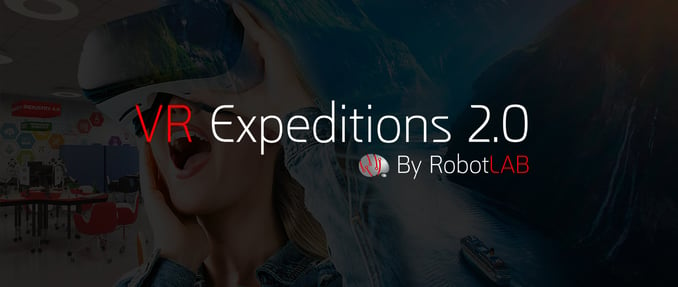
A long-time Google Expeditions partner, stepped up to fill the gap created by Google’s decision to sunset the popular app, introducing VR EXPEDITIONS 2.0
San Francisco, Nov. 20, 2020, - RobotLAB Inc., the leading educational robotics company, announced today the general availability of VR Expeditions 2.0 for classroom teachers. The company created the virtual field trip app and content management system in partnership with Encyclopedia Britannica, following Google’s decision to sunset the Expeditions App as publicly shared on Nov. 12, 2020.
- 0 Comments
- Nov 23, 2020 11:00:00 AM
- Posted by Natalia Galvis
- Topics: EdTech, STEM, Curriculum, teachers, students, Technology, VR, Realidad Virtual, Edchat, Digital Technology, teaching, online, Virtual Reality, virtual learning, lessons, eLearning
Using PBL to Boost Online Engagement
By Amy Nichols
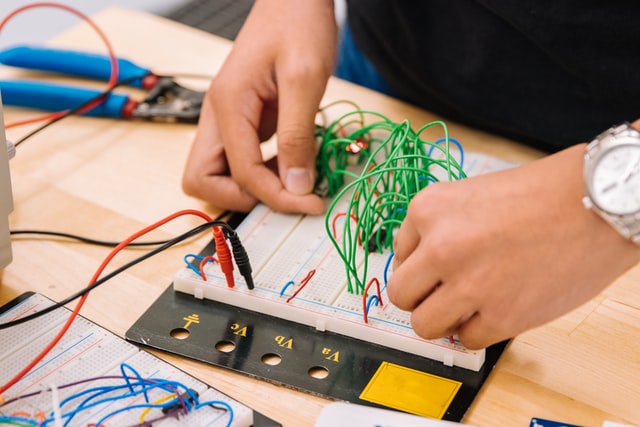 Photo by Jeswin Thomas on Unsplash
Photo by Jeswin Thomas on Unsplash
This period of remote teaching is a good time to start using project-based learning, which encourages authentic work and creativity.
- 0 Comments
- Nov 23, 2020 10:00:00 AM
- Posted by Natalia Galvis
- Topics: EdTech, STEM, Curriculum, teachers, students, Technology, Edchat, Digital Technology, teaching, online, lessons, eLearning
Supplementing Remote Learning With Non-traditional Education
By Daniel Farkas
Sometimes, educational experiences are found in the least likely of places--especially during remote learning.
 Photo by Kimberly Farmer on Unsplash
Photo by Kimberly Farmer on Unsplash
- 0 Comments
- Nov 20, 2020 10:00:00 AM
- Posted by Natalia Galvis
- Topics: EdTech, STEM, Curriculum, teachers, students, Technology, Edchat, Digital Technology, teaching, online, lessons, eLearning
Tech Trends that Will Influence Education in 2021
By Jonathan Brown
 Photo by Feliphe Schiarolli on Unsplash
Photo by Feliphe Schiarolli on Unsplash
Technology is advancing from day to day, changing our lives in the nick of time. There is no denying that the appearance of the internet and various devices changed the way we learn forever. Let’s look at the most significant EdTech trends that will transform education in 2021.
- 0 Comments
- Nov 19, 2020 10:00:00 AM
- Posted by Natalia Galvis
- Topics: EdTech, STEM, Curriculum, teachers, students, Technology, Edchat, Digital Technology, teaching, online, lessons, eLearning
5 STEM Skills Needed in Non-Tech Industries
By Devin Partida
STEM is one of the most versatile fields out there. It incorporates countless skills like data analysis and technical knowledge that professionals can then apply to a variety of industries. Remaining in STEM is not the only option available. Taking that expertise and using it elsewhere opens up opportunities in every industry imaginable.
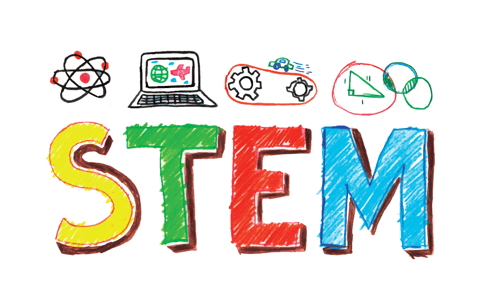
- 0 Comments
- Nov 18, 2020 10:00:00 AM
- Posted by Natalia Galvis
- Topics: EdTech, STEM, Curriculum, teachers, students, Technology, Edchat, Digital Technology, teaching, online, lessons, eLearning
The Most Valuable STEM Skills in an Automated World
The professional world is automating at an unprecedented rate. By 2030, 20-40% of young workers' jobs could be automated, putting renewed stress on future-proof skills. While STEM offers security, it's not immune to the automation wave, either.
Many STEM skills and processes are standardized, data-centric and logical, making them ideal for automation. Simultaneously, with tech playing a more substantial role in everyday life, STEM workers are more crucial than ever. In the face of these changing needs, educators and learners alike need to rethink essential STEM skills.
In an automated workforce, the most valuable skills are typically those that are uniquely human. That often involves a focus on soft skills instead of the hard techniques frequently associated with STEM. With that in mind, here are five of the most valuable STEM skills for an automated world.
By Devin Partida
- 0 Comments
- Oct 9, 2020 10:00:00 AM
- Posted by Natalia Galvis
- Topics: EdTech, STEM, Curriculum, teachers, students, Technology, Edchat, Digital Technology, teaching, online, lessons, eLearning
5 Reasons Why Preschoolers Need STEM (And Why It Must Be Easy!)
STEM education, which focuses on Science, Technology, Engineering, and Mathematics, has seen a rise in early introduction in schools. As technical and scientific skills become more sought after in the industry, more schools are encouraging kids from as early as preschool to learn STEM
 Image credit: https://pixabay.com/photos/child-boy-toddler-preschooler-play-1522870/
Image credit: https://pixabay.com/photos/child-boy-toddler-preschooler-play-1522870/
However, some bodies are still not convinced of the importance of STEM in preschool. So, this article focuses on five critical reasons for teaching STEM in the early years.
By Nancy Howard.
- 0 Comments
- Oct 8, 2020 10:00:00 AM
- Posted by Natalia Galvis
- Topics: EdTech, STEM, Curriculum, teachers, students, Technology, Edchat, Digital Technology, teaching, online, virtual learning, lessons, eLearning
21st Century Skills: What Students Need to Succeed in Today’s Society
 Photo by Annie Spratt on Unsplash
Photo by Annie Spratt on Unsplash
“21st Century Skills” (or “Transferable Skills”) are the abilities students need to develop to succeed in our information-based society. Input from teachers, education experts and business leaders, gathered in the Partnership for 21st Century Skills, defined the P21 Framework, a graphic representation to better understand what these competencies are as well as the support systems necessary to produce 21st century student outcomes.
- 0 Comments
- Oct 7, 2020 10:00:00 AM
- Posted by Natalia Galvis
- Topics: EdTech, STEM, Curriculum, teachers, students, Technology, Edchat, Digital Technology, teaching, online, virtual learning, lessons, eLearning
What are the Benefits of Learning To Code as a Child?
Coding is becoming one of the biggest trends to hit education since virtual reality. Because of this, parents and schools all over the globe are interested in teaching children to code. While teaching children to code may not turn them into a billionaire like Mark Zuckerberg, it certainly comes with a lot of benefits. Many of the advantages that I speak of are unknown to general public.
 Photo by cottonbro from Pexels
Photo by cottonbro from Pexels
So instead of watching people jump on the coding bandwagon because we said so, we decided to write an article that discusses the benefits of learning how to code as a child. That way parents and schools can make an informed decision. Believe it or not, some of the advantages that we are about to share may shock you. Well, without further ado, here is our list of the benefits of learning to code as a child.
- 0 Comments
- Oct 6, 2020 10:00:00 AM
- Posted by Natalia Galvis
- Topics: Math, EdTech, STEM, Curriculum, Special Education, teachers, autism, students, Technology, VR, Edchat, Digital Technology, teaching, online, virtual learning, lessons, eLearning
Advantages and Challenges of AI in Education for Teachers and Schools
By Aaron Swain
The future of education is deeply linked with the development of new artificial intelligence technologies and computing. Even while the debate is still ongoing as to what extent AI will replace teachers' presence. AI in the U.S. Education keeps growing at a reasonable rate. It is projected to go as high as 47.5% by 2021.
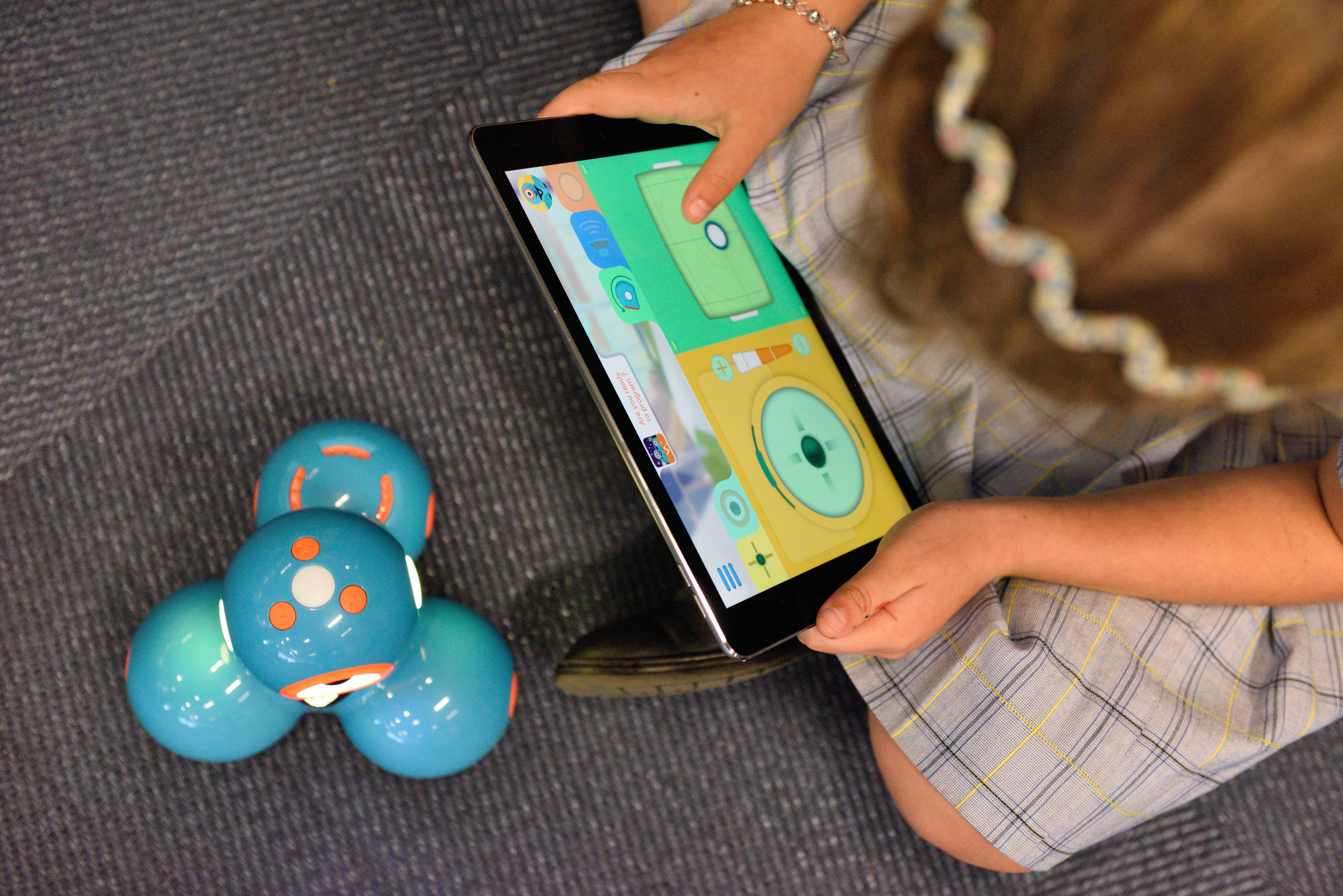
- 4 Comments
- Oct 5, 2020 10:00:00 AM
- Posted by Natalia Galvis
- Topics: Math, EdTech, STEM, Curriculum, Special Education, teachers, autism, students, Technology, VR, Edchat, Digital Technology, teaching, online, virtual learning, lessons, eLearning
Relevant Posts
Popular Posts
Subscribe to Email Updates
-
I Want To Learn MoreADDITIONAL INFORMATION


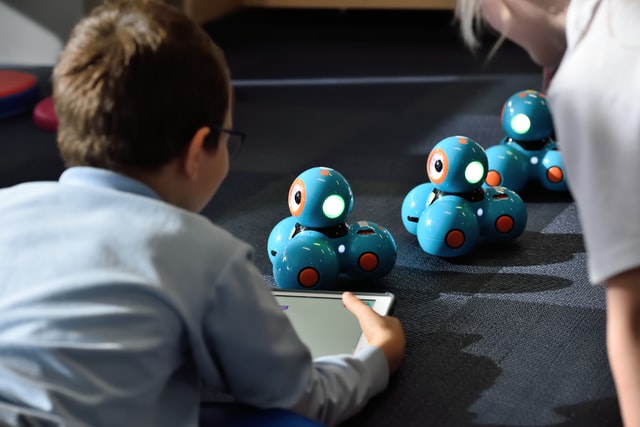 Photo by
Photo by 